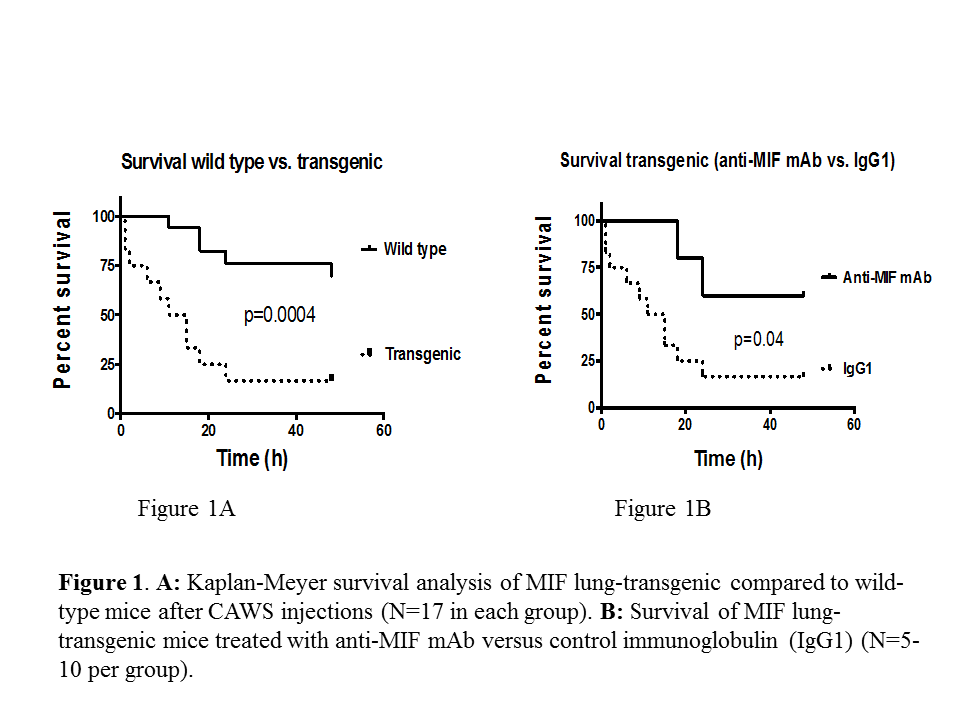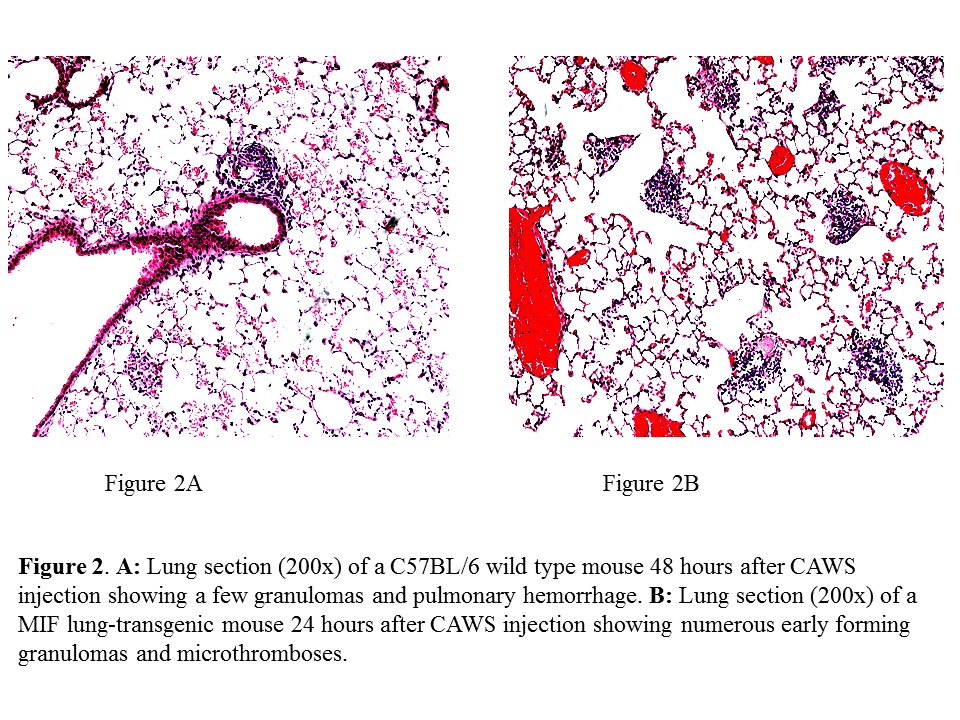Background/Purpose:
Macrophage Migration Inhibitory Factor (MIF) is an immunoregulatory cytokine that may play a central role in the pathogenesis of granulomatous diseases. Two functional polymorphisms have been identified in the MIF gene promoter that correlate with MIF production in vivo: a -794 CATT repeat (rs5844572) and a -173 G/C SNP (rs755622). This project aimed to study the association of MIF polymorphisms and MIF cytokine in granulomatosis with polyangiitis (Wegener’s, GPA) and to examine the role of MIF in a murine model of granulomatous vasculitis induced by Candida albicans water-soluble fraction (CAWS).
Methods:
The human study involved 488 Caucasian patients with GPA and 551 healthy age- and sex-matched controls. Genotyping for the CATT site was performed by PCR plus capillary electrophoresis; SNP analysis was performed by real-time PCR. The frequencies of high expression MIF genotypes (>5 CATT repeats and -173 C SNP) were compared between patients and controls. MIF plasma levels were measured by ELISA in 78 patients and 45 controls. Wild type C57BL/6 mice and MIF lung-transgenic mice, some treated with anti-MIF, were injected with CAWS and analyzed for survival and for pulmonary pathology.
Results:
The percentage of individuals carrying more than 5 CATT repeats (high MIF expression) was 60.9% in patients with GPA and 53.7% in controls (p=0.02). There was no difference in the -173 G/C SNP polymorphisms between these groups. Patients with GPA had higher mean plasma MIF levels than controls (15.9 +- 10.4 ng/dl vs. 6.7 +- 5 ng/dl, p<0.0001). A significantly higher percentage of MIF transgenic mice died when injected with CAWS as compared to wild type (Figure 1A). Injection of anti-MIF mAb protected transgenic mice from dying (Figure 1B). MIF lung-transgenic mice also exhibited more pulmonary granulomas than wild type mice (Mean number = 11.5 ± 0.8 /mm2 in transgenic vs. 7.9 ± 1.4 /mm2 in controls, p=0.1) (Figure 2A and 2B).
Conclusion:
Compared to controls, patients with GPA have an increased frequency of high-expression MIF CATT, and higher plasma MIF levels. In a murine model of granulomatous vasculitis, higher MIF expression increased mortality and pulmonary granulomas while injection of anti-MIF mAb protected mice from dying. MIF seems to play a critical role in the pathogenesis of GPA. Pharmacologic MIF inhibition may offer a promising therapy for GPA.
Disclosure:
A. G. Sreih,
None;
R. Ezzeddine,
None;
J. Fan,
None;
L. Leng,
None;
S. Carette,
None;
D. Cuthbertson,
None;
G. S. Hoffman,
None;
N. A. Khalidi,
None;
C. A. Langford,
None;
C. McAlear,
None;
P. Monach,
None;
P. Seo,
None;
U. Specks,
None;
S. R. Ytterberg,
None;
P. A. Merkel,
None;
R. Bucala,
Yale University,
9.
« Back to 2014 ACR/ARHP Annual Meeting
ACR Meeting Abstracts - https://acrabstracts.org/abstract/the-role-of-macrophage-migration-inhibitory-factor-mif-and-mif-gene-polymorphisms-in-the-pathogenesis-of-granulomatosis-with-polyangiitis/


